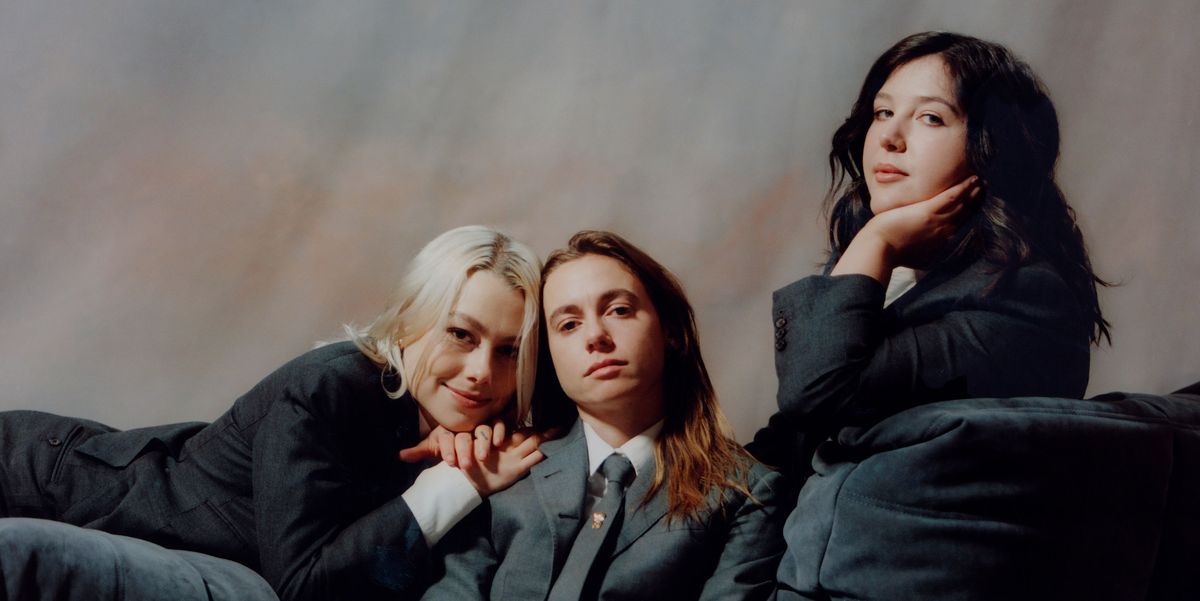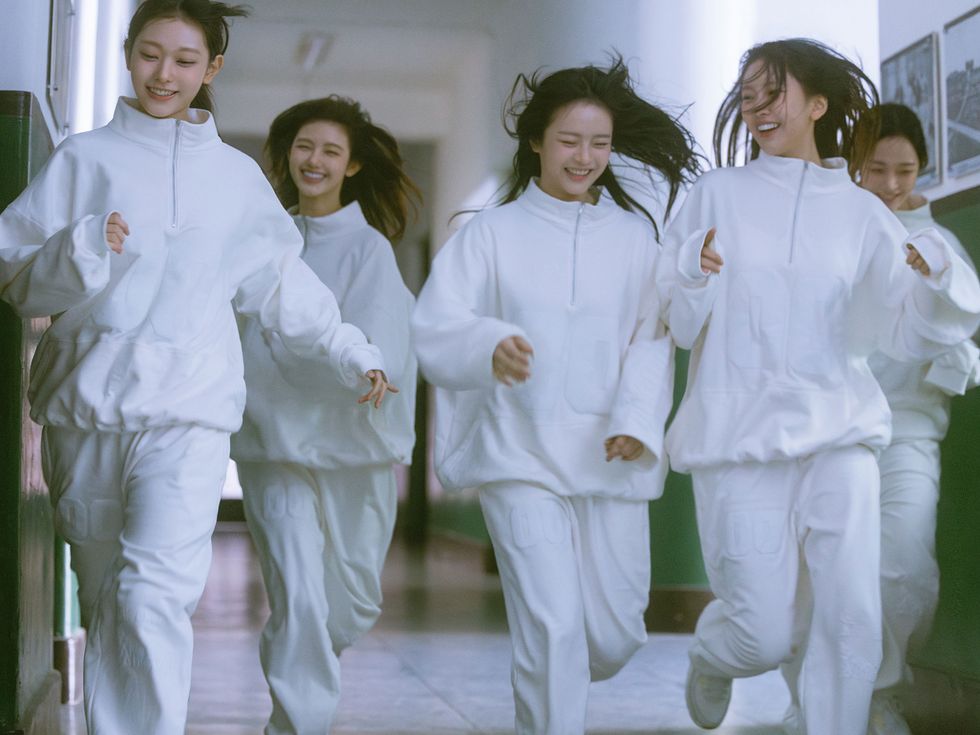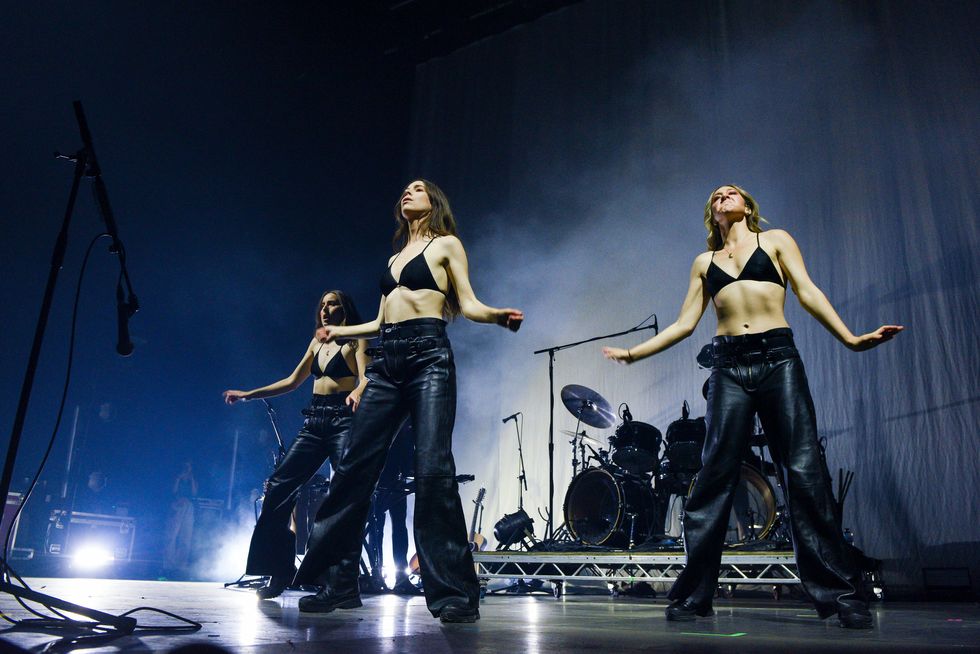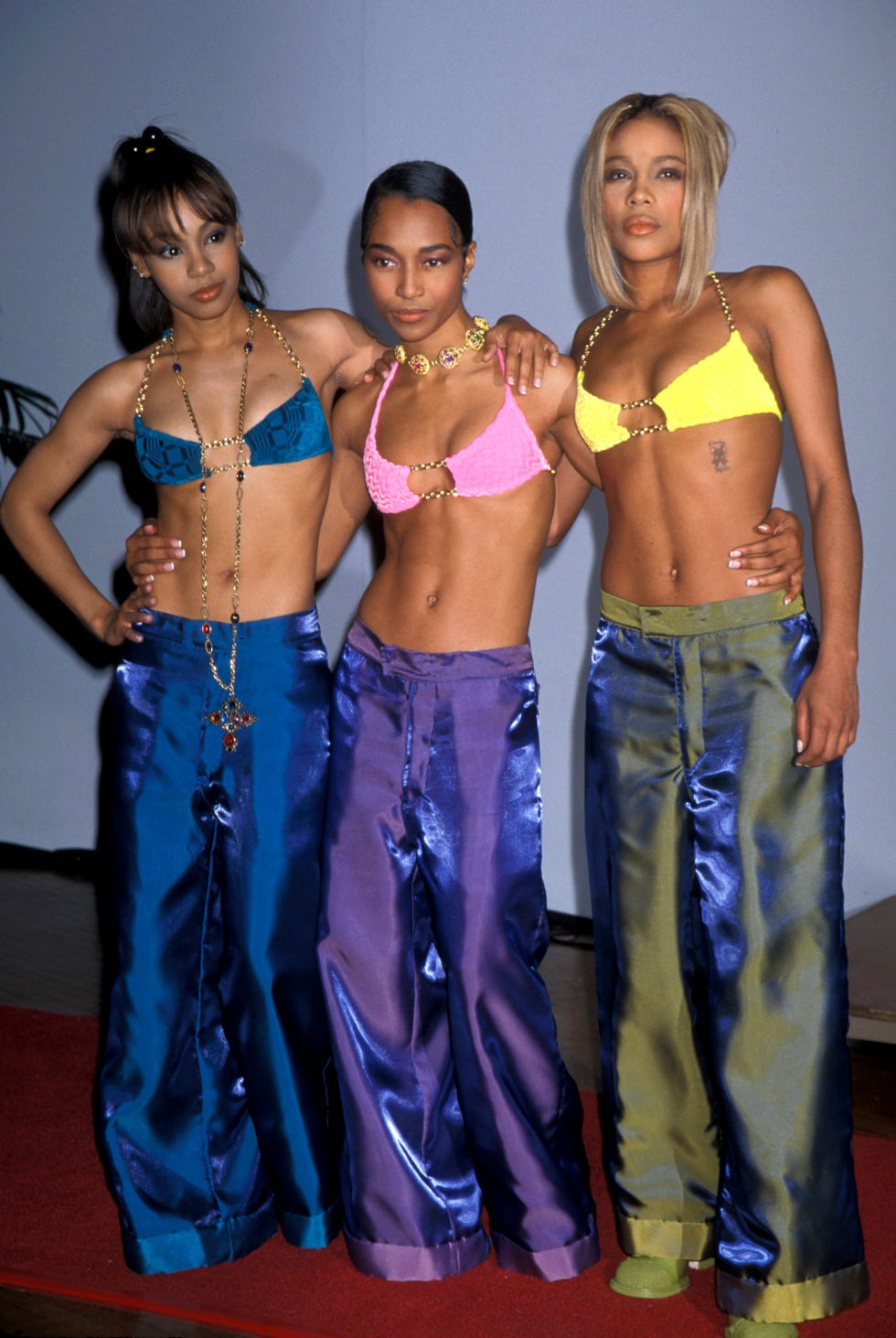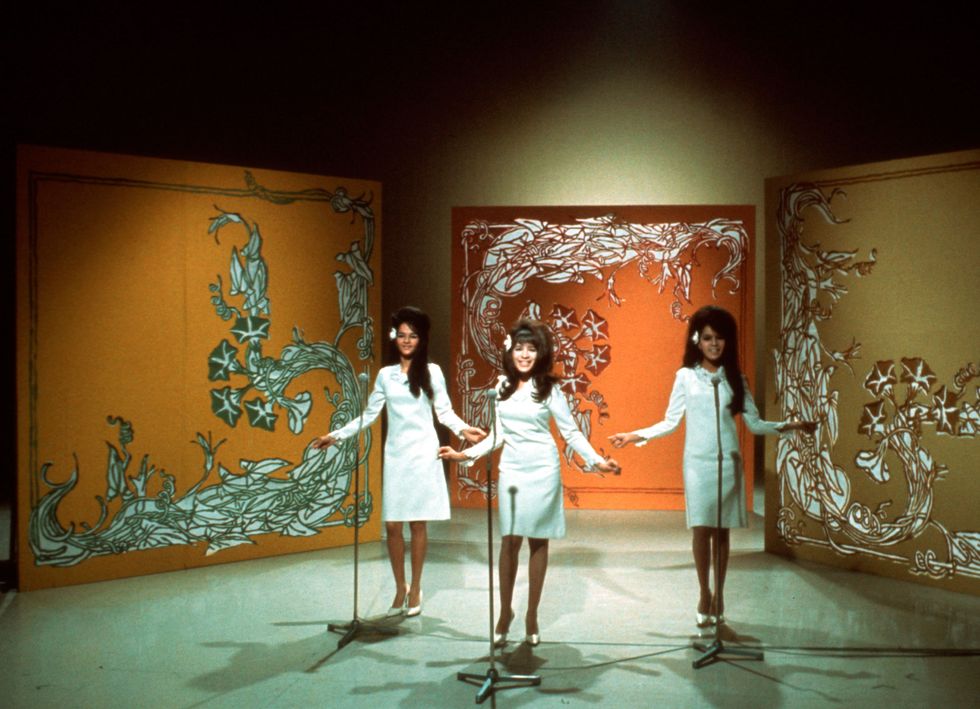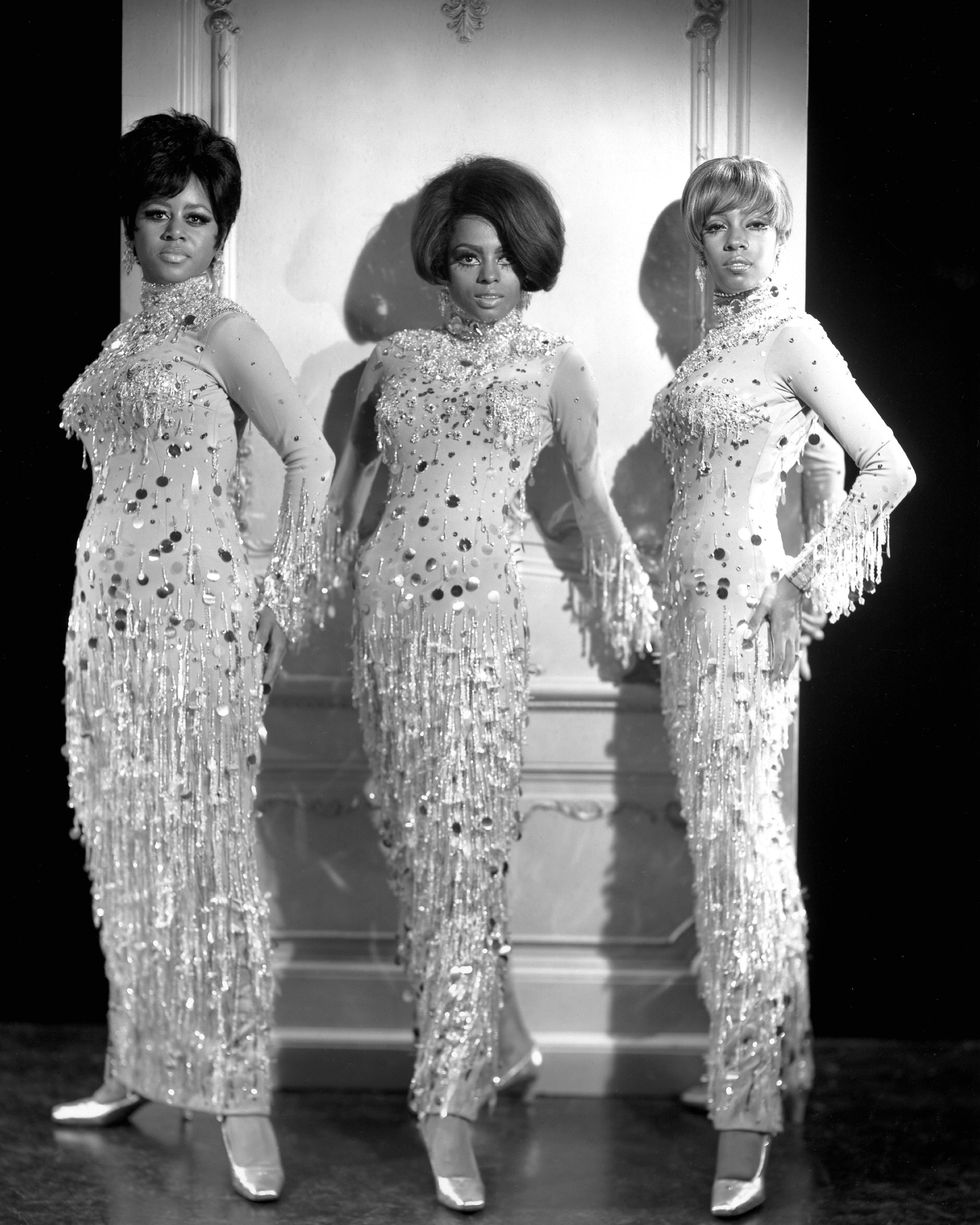Products You May Like
For years, I dedicated an entire section of my closet to silver. Not jewelry, but clothes. Tube tops threaded with tinsel. Tanks weighted down in diamanté. Halters undulating with waves of sequins. They were advertised as “going-out tops”—flimsy things that I suspect would shudder and wilt if held too close to an open flame—but for me (and about a dozen of my closest college girlfriends), they were part of a uniform.
Twice a week, sometimes more, we would get together and sing. Pop, country, R&B, whatever, but with never an instrument in sight. You could call us an a cappella group, and technically speaking, you’d be correct, but in our minds, we swore we were the Spice Girls. Even with a group that size, with more vocalists than seats in a passenger van, we seemed to settle into distinct archetypes. Sporty, Baby, Posh, sure, but also Preppy, Witchy, Sapphic, Mom. While shopping for silver, we gravitated toward pieces that reflected not just the stage lights, but those jagged, peculiar nuances of our personalities.
There’s no rule that people who make music together should dress alike, but when they do, one of two philosophies is usually at play. In the age of televised variety shows, exact matching was the dominant approach. The Ronettes in triplet wiggle minis and bouffants. The Beach Boys, a wall of Pendleton plaids and slacks. The Supremes, dazzling in Bob Mackie. These carbon-copy costumes signaled belonging, professionalism, and comforting stability in an uncertain world. But as the 1960s counterculture cast the singer-songwriter as a paragon of authenticity, dressing in tandem seemed to develop the opposite reputation, as though it were evidence of conformity or some unseen commercializing hand. Most newer bands rejected the practice entirely, while others sought ways to coordinate without sacrificing individuality.
Many of today’s bands (and even my silly school group) find their earliest visual origins here, in the long, surviving ripples of that reaction. It’s the spirit of the looks Rebecca Grice pulls for Haim, from slinky Louis Vuitton column gowns to Prada pastel separates. And those custom Mugler pieces that Casey Cadwallader and Park Min Hee pulled for Blackpink’s historic turn as Coachella headliners, all sculpted and sparkling bubblegum pink. The rule: All ensembles must be connected by a common element—a shared palette, a texture, a reference—but glimmers of distinctiveness must shine through. In musical terms, it’s the difference between singing in unison and striking that perfect harmony.
Last summer, boygenius, the supergroup project from Julien Baker, Phoebe Bridgers, and Lucy Dacus, took this history full circle. Their tour wardrobe, outfitted by Thom Browne, revolved around a collection of gray tailoring: vests and skirts and collared shirts, paired with chunky loafers and slim ties. “Wearing my clothing requires pure individuality,” says Browne about the collaboration. “A confidence of being together as a group and on your own.” With boygenius, his pieces evoke the Beatles’ early days of indistinguishable mop-tops and collarless Pierre Cardin suits, but give each musician plenty of room to play around with silhouettes. Never identical, not even across tour stops. “It was the perfect pairing,” the designer adds.
Stylist Lindsey Hartman, who also works with the band Paramore, extended this ethos further, infusing bits of purposeful rebelliousness into boygenius’s editorials and certain special performances, taking aim at established tropes like Brokeback Mountain and the Holy Trinity while still balancing group cohesion. “I think the key is establishing a little signature for each member and trying to bring that to the table each time,” she explains, “whether it’s a vest on Julien, gloves on Lucy, or a black bow on Phoebe.”
It’s reminiscent of the way Tina Knowles, Beyoncé’s mother and earliest stylist, talks about dressing Destiny’s Child. Initially, because Knowles struggled to source designer clothes for the girls’ appearances, she would create them herself, developing the group’s overall style and what are now some of their most iconic looks on a shoestring budget. A fan of Motown girl groups, she looked to the Supremes as a blueprint—but as she said in a 2017 interview, she “always tried to look at what each girl liked about her body.” Knowles’s designs were not only inventive but prescient, inspiring future groups and runway collections alike.
In 1974, when the girl group-turned-funk trio Labelle (who first popularized “Lady Marmalade”) played a historic show at the Metropolitan Opera, the event poster read: “WEAR SOMETHING SILVER.” Last summer, Beyoncé made a similar appeal for her Renaissance World Tour. Ahead of her birthday, she asked fans to celebrate with her “wearing [their] most fabulous silver fashions.” The goal was to turn each stadium into “a shimmering human disco ball” for every night of Virgo season. The next level of coordination: performer and audience. My mind turned to the bag of going-out tops gathering dust under my bed.
This article appears in the May 2024 issue of ELLE.
